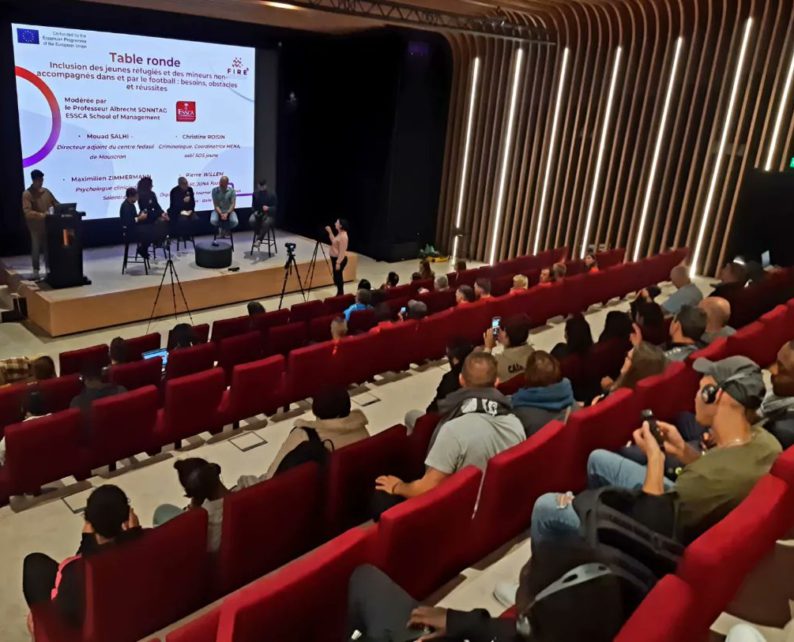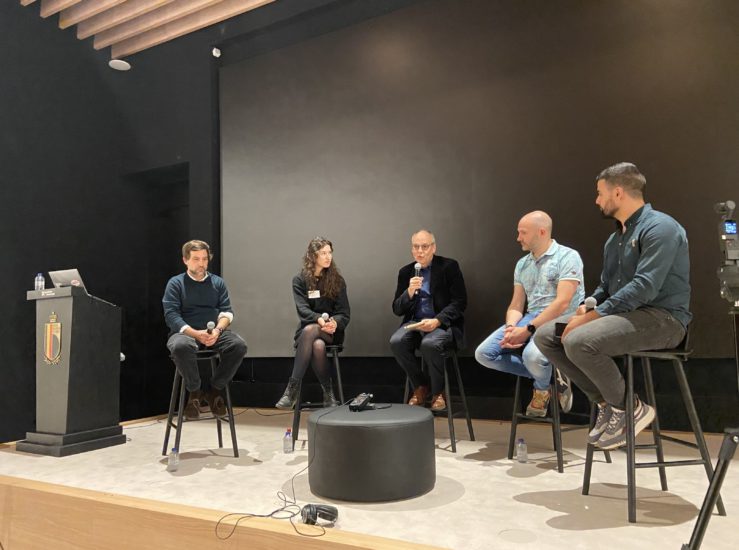This morning of the 12 of October started early, at 8:30 on the RBFA facilities in Tubize. The members of the consortium put on their football boots for an unforgettable moment: experiencing the FIRE+ project on the field. One of the FIRE+ laureates, the organisation Younited Belgium, was organising its inclusive football tournament to which we had the honour of being invited. Players from teams affiliated to the “Younited” league were raring to start the tournament in a friendly atmosphere. There was no competitive spirit on the field: the most important thing was to enjoy our favourite sport and connect with people from different backgrounds. The matches were played 4 against 4, for two times 7 minutes.
After a quick shower and a convivial lunch, everyone gathered in the RBFA auditorium. After a few words on the unfolding of the conference, the floor was given to Sophie LOPEZ – in charge of the FIRE+ project within the think tank Sport and Citizenship. This speech was an opportunity to recall that the FIRE+ project has the ambition to mobilise the world of football to face the crisis of reception and inclusion of refugees and migrant populations that the European Union has been experiencing since 2015. Marvin OLAWAIYE – Football Social Responsibility Advisor at the ACFF then addressed the issue of the affiliation of refugee populations to the RBFA. Among other things, , he reminded us that the affiliation of an unaccompanied minor was part of the exemptions that allowed the federation to exempt itself from presenting the case to the FIFA Football Court for validation. The floor was then given to Marine POLIART. The head of Younited’s activities in the Walloon region explained the philosophy of the association to the audience. Younited offers football and, more recently, cycling activities for “survival experts”, who are people facing various sources of vulnerability.





